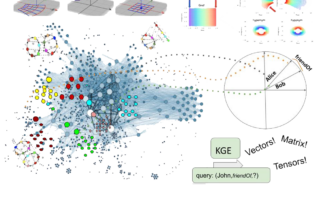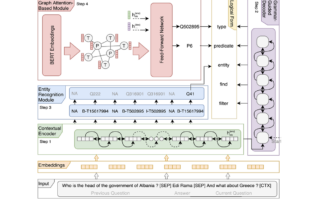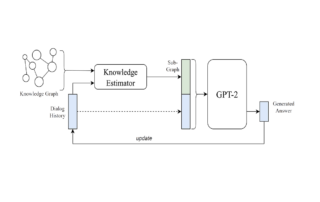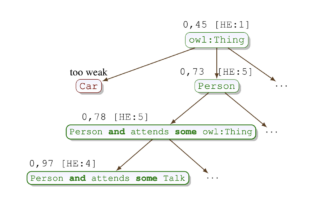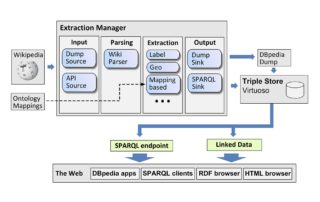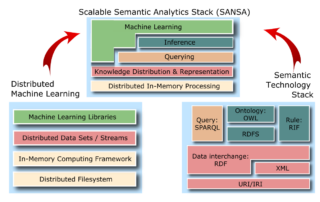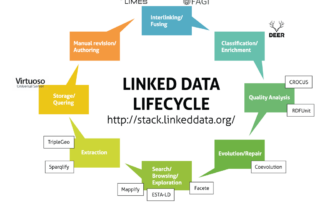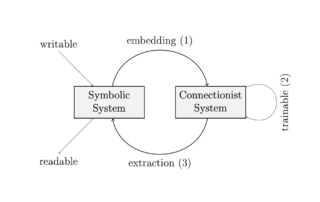Research Areas
My overall research goal is to build intelligent systems through a combination of knowledge modelling and machine learning methods. Existing (non-artificial) intelligent systems, such as the human brain, are able to process and learn from information on an abstract, symbolic level (corresponding to knowledge modelling) as well as a subsymbolic, sensory level (corresponding to statistical observations). I believe artificial intelligent systems can benefit from similar combinations, in particular by using knowledge bases together with machine learning techniques. Below, I describe some of my research areas in more detail with pointers to relevant publications.
Language Models
Since 2017, my team(s) and I have worked on improving and using (increasingly large) language models. The following fields were particular focus topics: Integration of Knowledge into LLMs: I explored methods for integrating structured knowledge sources, such as knowledge graphs, into LLMs. This integration aims to enhance the factual accuracy and [...]
Representation Learning in Knowledge Graphs
Most current machine learning methods require an input in the form of features, which means they cannot directly use a (knowledge) graph as input. For this reason, we aim to learn feature representations of entities and relations in the knowledge graph. This is called representation learning and the same idea is not just applied to graphs - but al [...]
Question Answering over Knowledge Graphs
Since around 2011, I work on question answering over knowledge graphs (KGQA). In a narrow sense question answering over knowledge graphs is the task of translating a natural language question into a formal query (often SPARQL). Question answering has many interesting applications, e.g., in call centres, production systems, the automotive sector, h [...]
Dialogue Systems
Dialogue systems can perform natural conversations with multiple turns. While this area has been a yardstick for Artificial Intelligence at least since the Turing Test was devised in 1950, popular interest has notably increased recently due to a rise of platforms and speech assistants such as IBM Watson, Google Assistant, Apple Siri and Microsoft [...]
Concept Learning in Description Logics
The problem of learning logic programs has been researched extensively, but other knowledge representation formalisms like Description Logics are also an interesting target language. The importance of inductive reasoning in Description Logics has increased with the rise of the Semantic Web, because the learning algorithms can be used as a means fo [...]
Knowledge Extraction
Most information on the web is available in unstructured or semi-structured format. In many cases, it is desirable to convert this information into structured form (often so-called knowledge graphs) as this allows researchers and practitioners to easily query and re-use this information. I worked on several extraction projects - the most well-know [...]
Distributed Analytics
Over the past decade, vast amounts of machine-readable structured information have become available through the increasing popularity of semantic knowledge graphs in a variety of application domains. However, a major and yet unsolved challenge that research faces today is to perform scalable analytics, i.e. machine learning, inference and querying [...]
Spatial Data in the Semantic Web
In order to employ the Web as a medium for data and information integration, comprehensive datasets and vocabularies are required as they enable the disambiguation and alignment of other data and information. Many real-life information integration and aggregation tasks are impossible without comprehensive background knowledge related to spatial fe [...]
Extraction from Artificial Neural Networks
Overview Artificial neural networks can be trained to perform excellently in many application areas. While they can learn from raw data to solve sophisticated recognition and analysis problems, the acquired knowledge remains hidden within the network architecture and is not readily accessible for analysis or further use: Trained networks are black [...]


